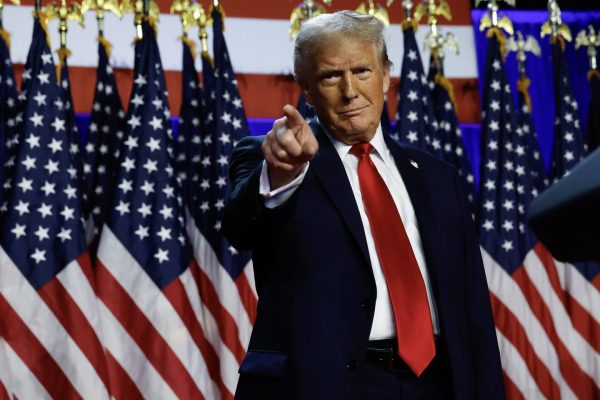Television was Never Neutral

Within the span of a few days, L’Oréal Paris went from hiring its first transgender model, Monroe Bergdorf, to firing them for inflammatory comments for pointing out the racism of white America. Similarly, political commentator Tomi Lahren was removed from her former position at The Blaze for suggesting that abortion should be more easily accessed.
While these aren’t on the level of the Dixie Chick’s expulsion during the second Bush administration from the heart of country music lovers everywhere, there’s an ongoing cloud that hangs over the heads of anyone in front of a camera who dare speak their opinion. Thanks to twitter, opinions are as popular as ever. Blue checkmarks are rapidly firing their stances on everything from climate change to what the best type of bread is. So understandably, normal people have grown fatigued.
This isn’t new, but the critics or the celebrities they’re shunning have never been given such a grand stage. Given that Twitter arguably reached popularity in 2012, around the start of President Obama’s second term, the political circle wasn’t nearly as vitriolic. Simply put, people didn’t need to speak out because what they were was in line with what the President was saying.
Now ownership has flipped and a republican is in office, people on both sides of the road are angry, left leaning twitter is organizing against the government while the right is doing its best to defend its decisions. At this point, everyone is trying to grab who they can on their side- it just so happens that modern Hollywood lines up with liberal America.
Once again, this isn’t new, and the thoughts these people have aren’t just appearing out of thin air- it’s always been this way. Comic books are a popular target- the new Spider-man is black, the new Captain America is pro-immigration. The medium has always been about questioning the status quo. In the past, the targets were distant; Superman fought Nazis instead of arguing with white supremacists on our own American soil. Media that doesn’t push a thought becomes stale media- the stories and jokes become bland and repetitive. The safe, idealistic sitcoms of the 1980s were blown out of the water once The Simpsons showed up with their satirical take on American life and politics, then it happened again once South Park took the same road in the late 90s.
Entertainment nowadays is edgy and opinionated, you’d be hard pressed to find something that didn’t have an underlying tone of class or race – even Spongebob Squarepants had a stab at the working class’ quality of life, the message is just more diluted, more easily digestible. People can just not think about Bojack Horseman’s depictions of alcoholics and nihilism when it’s being told by a cartoon horse. The ugliness isn’t real and that’s what keeps viewers distant.
Whenever the country watches some tragedy or riot the response from a lot of the country is that it could never happen to them – their community isn’t like the one on television, their family isn’t like the one on The Jerry Springer Show. Modern entertainment thrives on the edge of a knife, one that keeps people astounded with what they’re seeing but grounded enough to happen. If a show chooses to keep its cards too close to the chest it becomes the Big Bang Theory – a bland and flavorless show that has to employ the laugh track to remind the audience that it’s supposed to be a sitcom.
Celebrities voicing their opinions humanizes them – changes them from the caricature on the television screen, the person in our favorite TV shows or that commercial for car insurance. Naturally, people are resistant to that. One of the reasons people watch television is to turn off their brain, with knowledge of where the people stand in today’s polarized society can feel like a bug on their shoulder. But instead of filling their feed with spite and strongly worded 140-character letters, maybe changing the channel would be more productive?



